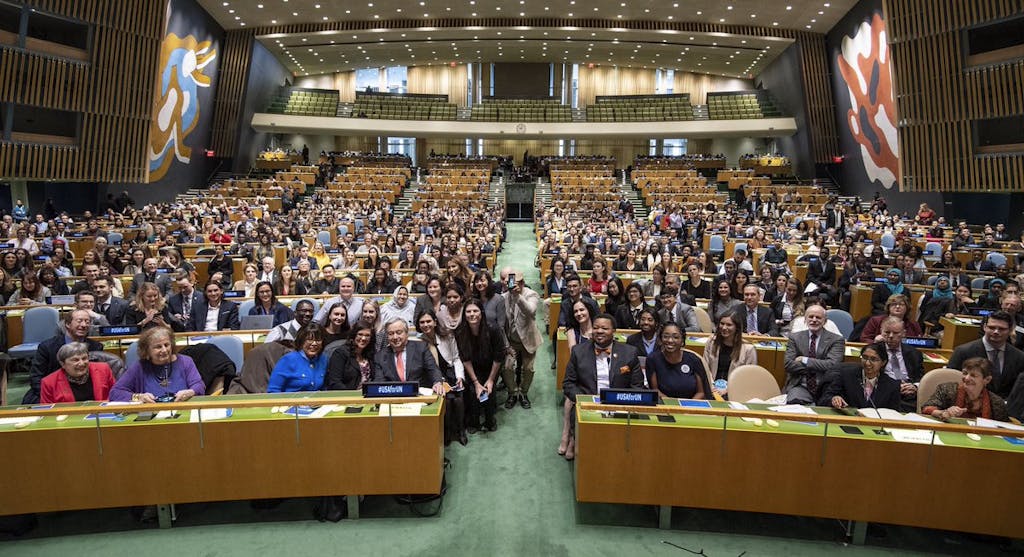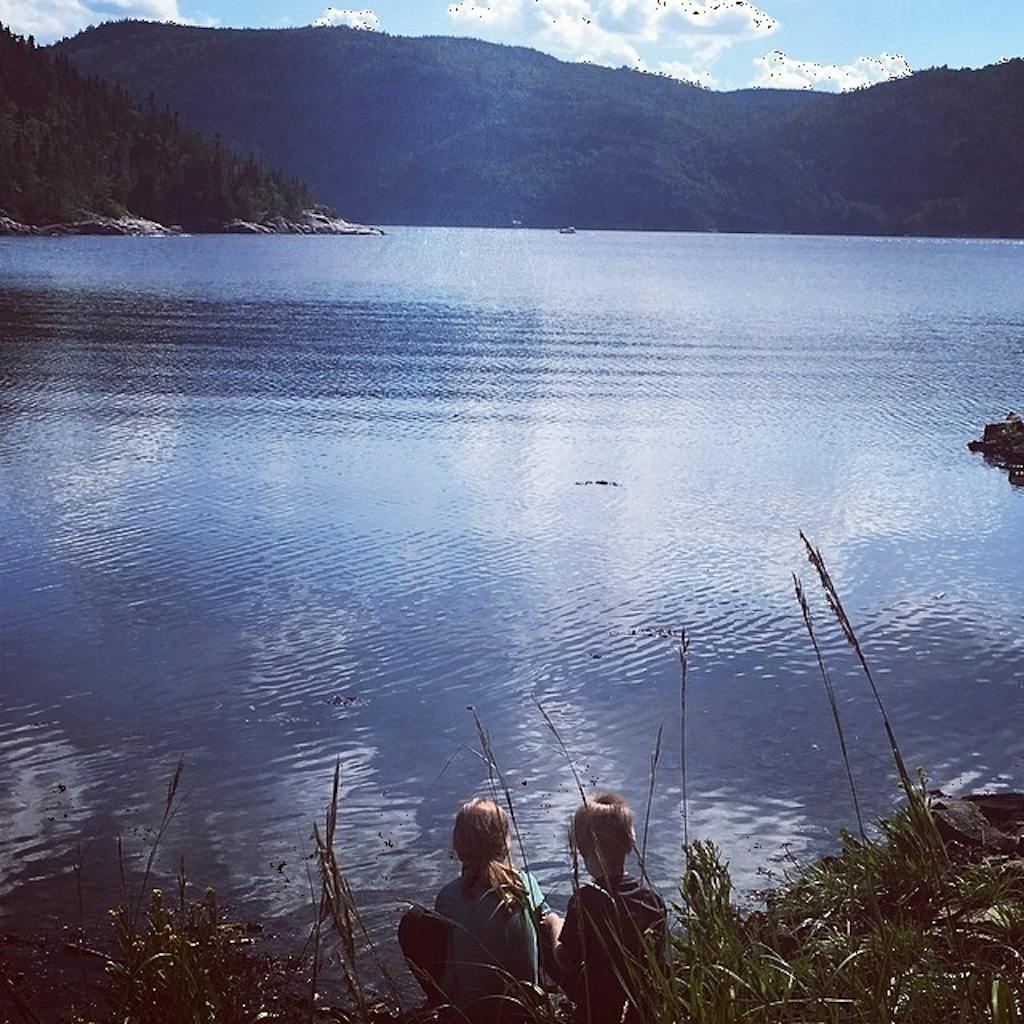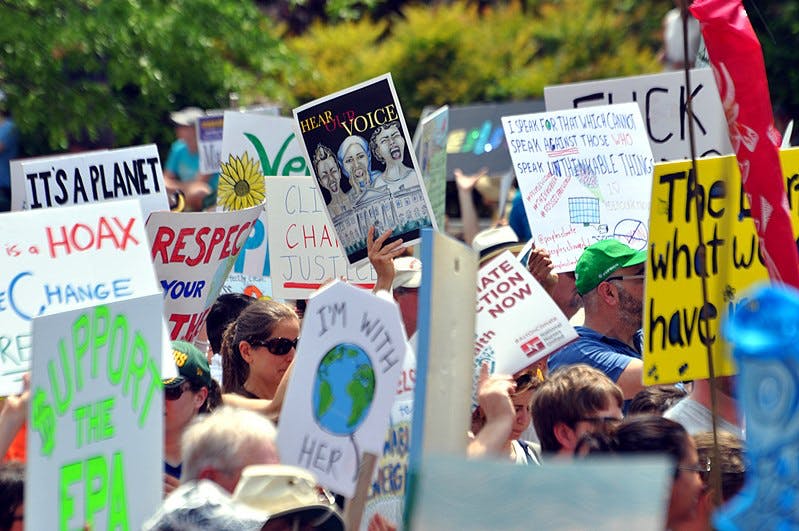In a world of division, young people are standing up for collective action. On March 15, thousands of young people in more than 100 countries and 1,600 cities and towns will take to the streets to march for greater ambition and urgent action around climate change. Part of their rallying cry is to push global leaders to uphold their commitments on the Paris Climate Agreement, signed by 196 countries back in 2015. Sparked by 16-year-old Swedish activist, Greta Thunberg, who has unabashedly called out big businesses and politicians for ignoring the science on climate change, these protests present a historic shift in our approach to tackling urgent global challenges.
Youth climate leaders from around the world penned an open letter to leaders in advance of Friday’s strike, stating, “We are going to change the fate of humanity, whether you like it or not.” Indeed, young people are no longer accepting the status quo — they’re taking the lead now and we must listen to them.
With over 1.2 billion young people aged 15 to 24 years in the world today – accounting for 16% of the global population and the largest generation of young people in history – the active engagement and leadership of youth will be critical to achieving the Sustainable Development Goals (SDGs) and averting the most severe challenges the global community is up against. And while many of the biggest headlines have focused on young people standing up for climate action, it is just one of the many persistent threats that youth face — and that the world can’t afford to ignore.
Barriers to Overcome
As United Nations Secretary-General António Guterres has highlighted, factors such as “globalization, new technologies, displacement, shrinking civic space, changing labor markets and climate impacts” are putting immense pressure on youth everywhere. The recently released UN World Youth Report showed that 71 million youth around the world are without formal employment and, of those who are employed, nearly 156 million live in poverty.
In addition to unemployment and poverty, many are unaware that youth face severe risks in:
- Education: 30% of the poorest 12 to 14 year olds around the world have never attended school, and by 2030, if current trends persist, only one in ten young people will be on track to gain basic secondary-level skills in low-income countries.
- Representation in government and policy making: less than 2% of parliamentarians around the world are under 30. Clearly, important decisions are being made without young people, even though they will be the ones who are most affected.
- Access to resources, finance, and planning: two-thirds of countries don’t consult youth when preparing national development plans, which help chart the direction of a country across health care, energy, education, and virtually all SDGs.
There are also barriers when it comes to mentorship, having seats at the table, and implicit biases against younger faces and voices. These, taken together, can undermine and prevent young leaders from operating and producing change at their full potential. And worsening impacts from climate change, the loss of biodiversity, and more, will introduce even more instability in their already uncertain futures. Between now and 2030, 1.9 billion young people will turn 15. We cannot afford to get this wrong.
The Potential for Impact
Despite the looming challenges set before them, young people are already having an impact in both big and small ways across the globe – from breaking barriers in taking elected office, to brave actions to make their communities safer, more prosperous, and more inclusive, younger generations have urgency at their backs and bravery in their hearts. And unlike previous generations, they’re taking on the world with new attitudes, new tools, and new forms of action.
New Attitudes: For young people, the reality has set in: if they wait their turn to lead, it will be too late. We don’t have to look far to see this “do it now” attitude taking hold — from LGBTQI advocates like 18-year-old Thomas Chung, who are fighting to protect human rights to ardent conservationists like 16-year-old Bella Lack, who are fighting to end wildlife poaching.
In a young changemakers panel at the 2019 World Economic Forum, organized by the UN Foundation and Verizon, one panelist, who founded a non-profit dedicated to advancing and protecting the rights of women in Libya, said that young people need a helping hand, rather than a “hand-up.” That’s the approach the UN is taking through its new Youth Strategy — and with the support of the fierce Youth Envoy, Jayathma Wickramanayake — giving young people a seat at the table and letting them identify areas where they need a helping hand.
And despite the reputation that millennials may have, they are in fact informed, empathetic, and engaged. A survey last year undertaken by the Better World Campaign of millennial and Gen Z Americans showed that young people want to be put to work to make the world better, including around poverty, human rights, and the environment: 92% of them agreed that they would be willing to act on behalf of the most pressing issues facing the world today.
This inspiring resolve in action was clear at last month’s Global Engagement Summit at the UN, when more than 1,800 young Americans collaborated with Secretary-General Guterres on a digital call-to-action for climate change, amplifying the many positive, personal actions individuals can take.

New Tools: Fortunately, young people have new tools at their disposal for generating collective action. The potential of digital communication, for example, cannot be understated. Almost 50% of all internet users are below the age of 25, and they are nearly two times more networked than the global population as a whole. The vast spread of the climate strikes, which started with one girl in Sweden tweeting about her weekly climate protests and has now amassed into a global movement, demonstrates young people’s powerful ability to harness the internet for social change.
Young people are also using digital tools to form networks, coalitions, and platforms in creative ways, from Cohort 2030 to SDSN Youth to young entrepreneurs. We need to support these efforts to make sure that youth aren’t only thought of as activists, but also that they are actively engaged in our decision-making and taken seriously.
New Forms of Action: With virtually unlimited access to information and a strong will for impact, young people not only know how to exert their influence in the political sphere, but in the private sector as well. Some estimates project that millennials will make up 75% of the workforce by 2025, and they are seeking out socially responsible employers, putting pressure on the private sector to act.
They reward socially responsible businesses too. According to a study from Nielson, 73% of global millennials say they’re willing to pay more for products and services that come from companies that are committed to positive social and environmental impact. Additionally, new research from Girl Up, a girls’ leadership initiative founded at the UN Foundation, found that the majority of global Gen Z girls (aged 13-19) say buying from brands that are environmentally friendly and give back to the community is important. That’s why initiatives like the World Benchmarking Alliance, which aims to fairly rank companies based on how they are aligning their business practices with the SDGs – and therefore global progress – can help provide research and information to support young people in their activism.
Where to From Here?
Youth are the world’s greatest resource and potential for the SDGs, and for this planet. They may have inherited the complex world we live in today, but they are determined to make it work for all people, and in a more sustainable way. The urgency to create pathways for youth inclusion cannot be understated – whether it’s in quality education, political representation, or development. We need to take their calls for greater action seriously, and their solutions for getting there.
Young people bring urgency and impatience to the debates that we need. The SDGs and the Paris Agreement are a framework, but they only work if we do things differently. That means youth have to be AT the table, not just talked about. I hope we see more of these voices and these critical messages this year as we look to important moments for climate action and sustainable development.
Even though passionate topics like this can seem distant to write and read about, for me, it’s very personal. My two young children will just be entering into adulthood in 2030. What world will be ahead of them? When I think about the real probability that my children will be irreparably impacted by climate change, I also take solace in their positive determination. As my young daughter said recently after reading about climate change: “Mom, civilization is in its toddler phase. We are making mistakes but learning. We will grow up to take care of this planet and learn to take care of others as well. I really believe that.” Then so do I, dear one. Because I believe in you.


